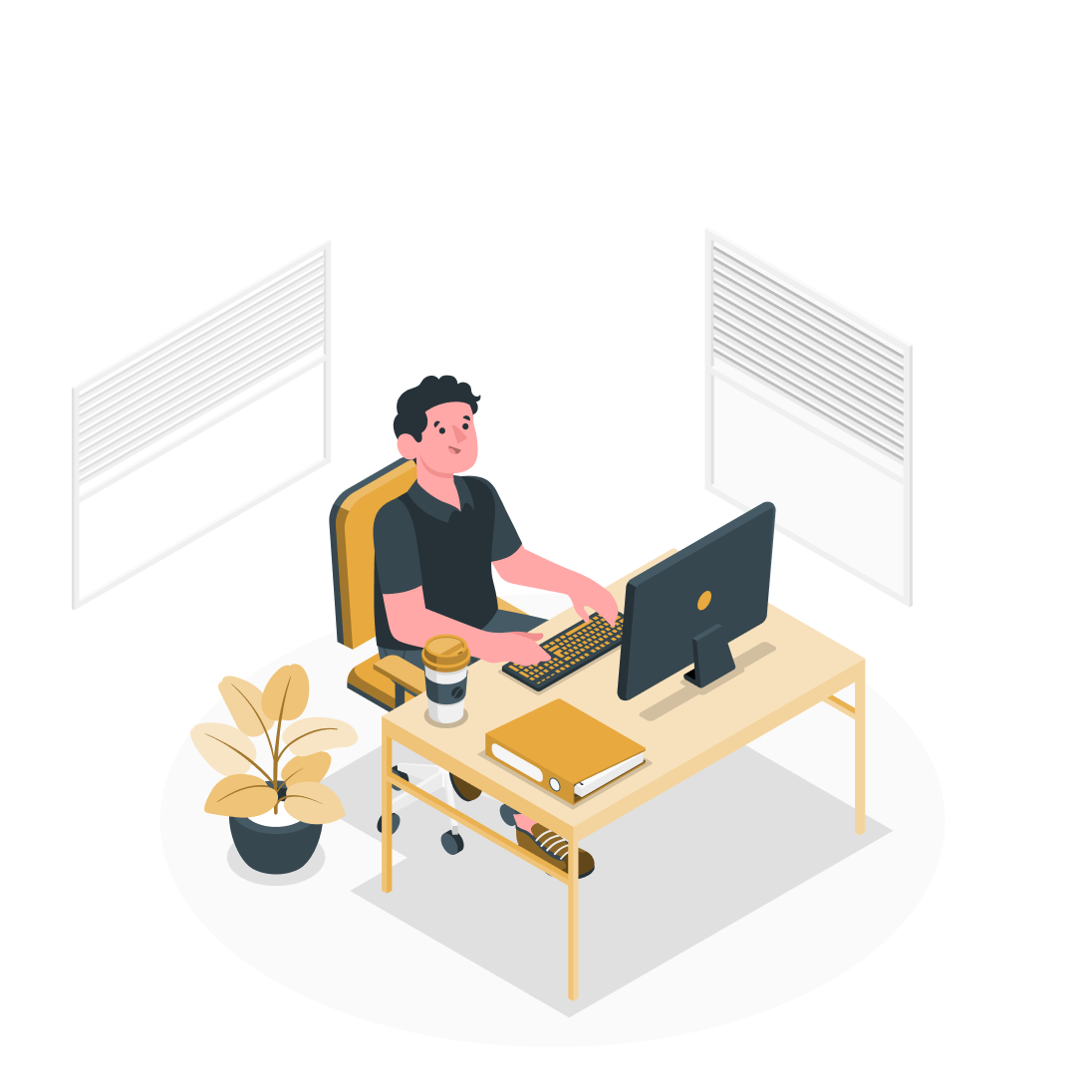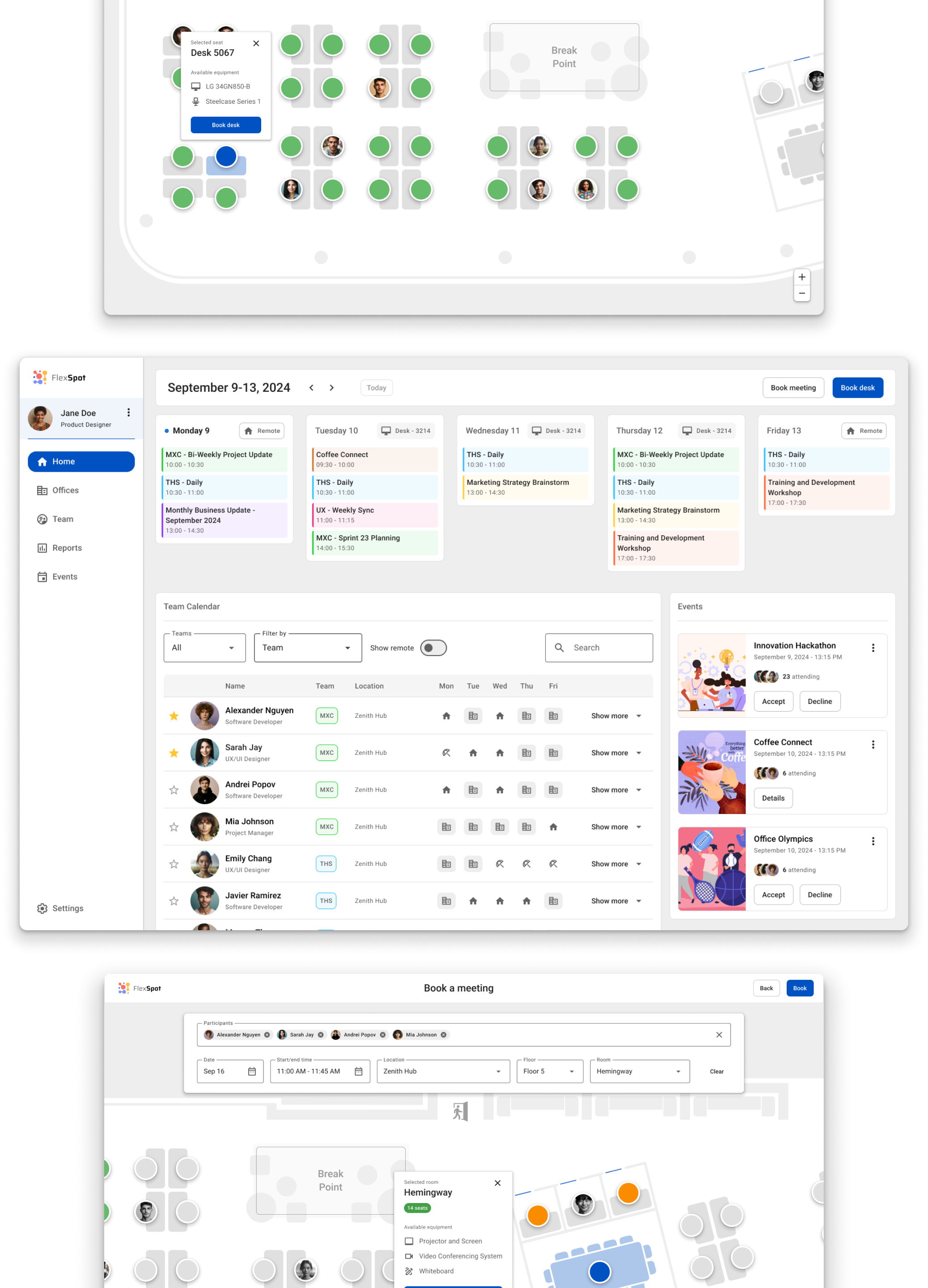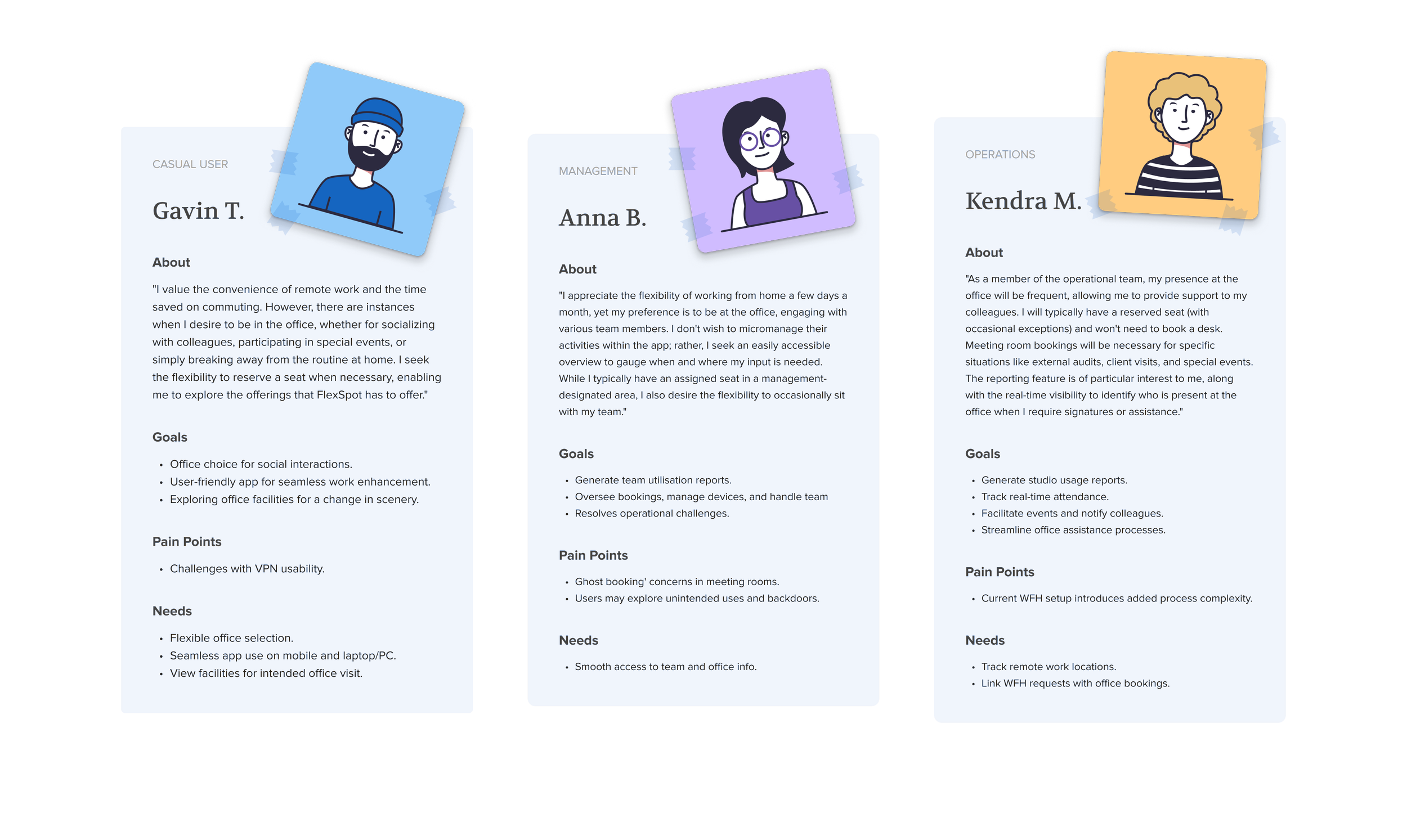FlexSpot
Case Study - Discovery and Iterations
The challenge
The challenge of the FlexSpot project lies in addressing the evolving needs of modern workplaces amidst the shift towards flexible work arrangements. This includes tackling issues such as overcrowded workspaces, uncertainty in planning, and a lack of visibility. The aim is to provide users with a solution that ensures efficient desk allocation, enables effective workday planning, and offers clear visibility into real-time office space utilisation.
My role & responsibilities
User Interviews, Workshop Facilitation, Personas, User Stories, Information Architecture, Wire Framing, Prototyping, Metrics
Tools used
Figma, FigJam, Trello, Hotjar, and Google Analytics
Project Span
18 months
Essential flows
Dashboard
Offers a swift summary of users’ schedules and various team schedules.
Book Room
Streamline the process for booking a desk.
Book Meeting
Reserve a meeting room while offering an overview of available spaces and teams.
Assessing the impact
Data from the initial six months, either by comparing with the previous process that had data available or by comparing month-to-month data for the first six months when it wasn't accessible:
Increased User Engagement
43%
Measured by the rise in the number of active users, and interactions with key features.
Task Completion Rate
82%
Measured by analysing the percentage of users successfully completing tasks or processes within the application.
Time-on-Task Improvement
56%
Analysing the reduction in the time users spend on completing specific tasks or processes.
Decreased Support Tickets
47%
Reduction in the number of customer support tickets related to the WFO/WFO process
Net Promoter Score
72%
Mobile version
Users needed the freedom to book at any place and time.
The process
in more detail
Understanding the user and the expected journey
At the beginning of the project, there was no pre-existing research documentation to lean on. With no existing insights, I crafted a user interview script and identified potential users based on their roles and their current interactions with office space.
Goals
The main goals of the user interview sessions were to identify user typologies, understand their motivations, identify pain points, recognise needs, and grasp the current hot-desking process.
One space, countless journeys...
Following 25 user interviews encompassing 3 distinct user types, I consolidated the raw data into more comprehensible formats, including user personas, information architecture, and user stories.
Comprehending users through crafted personas
For the purpose of consistent user understanding, user-centric solution, and fostering empathy, ultimately improving product adoption and facilitating, I created three user personas from the user interviews generated data.
Navigating complexity through information architecture.
After gaining clarity on user behavior and information-seeking patterns, I created an IA diagram to enhance comprehension of the necessary flows. Below, the highlighted structure tree outlines the “Book” section.
Bridging needs to solutions with user stories
Adopting the user's perspective as the narrator, I documented insights into both expected and unique situations in which users engage with the booking experience. This approach facilitates the generation of solutions tailored to address users' specific needs. Below, an overview of all the generated user stories and the bullet point for the casual user persona.
Bringing Concepts to Life
I leveraged all the information generated so far to materialise ideas into concrete design elements through screen mocks, offering a visual journey through key design decisions and outcomes.
Once the platform went live, we commenced data collection and proceeded to iterate through the process multiple times. This iterative approach aided in identifying and prioritizing areas for improvement.
Thank you for your time
Whether you've got questions, opportunities knocking, or just want to share a friendly greeting, feel free to reach out!





